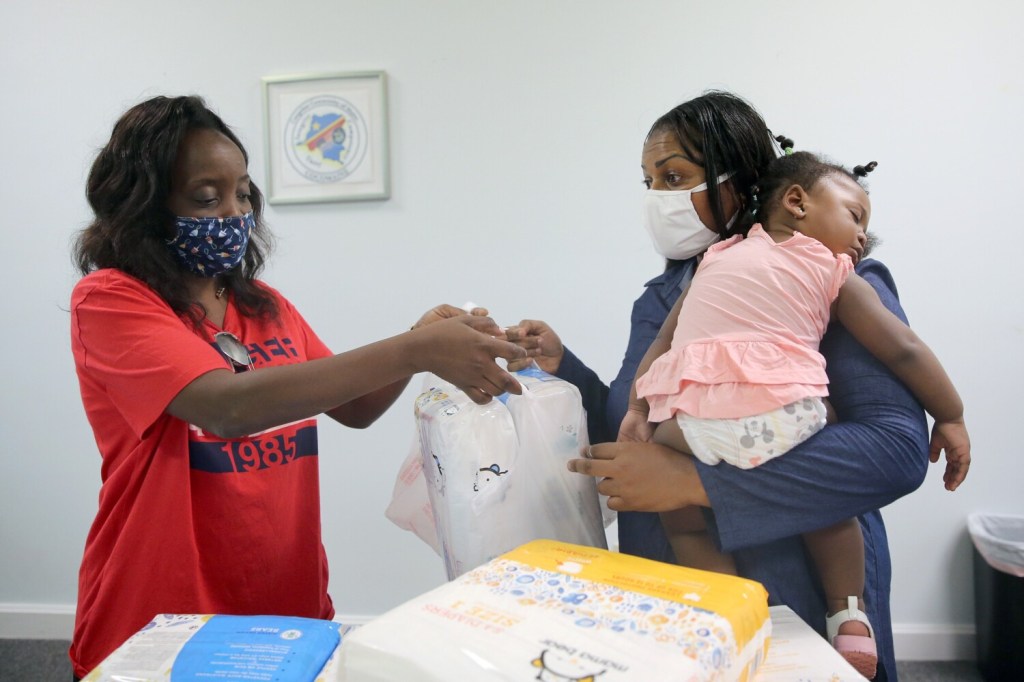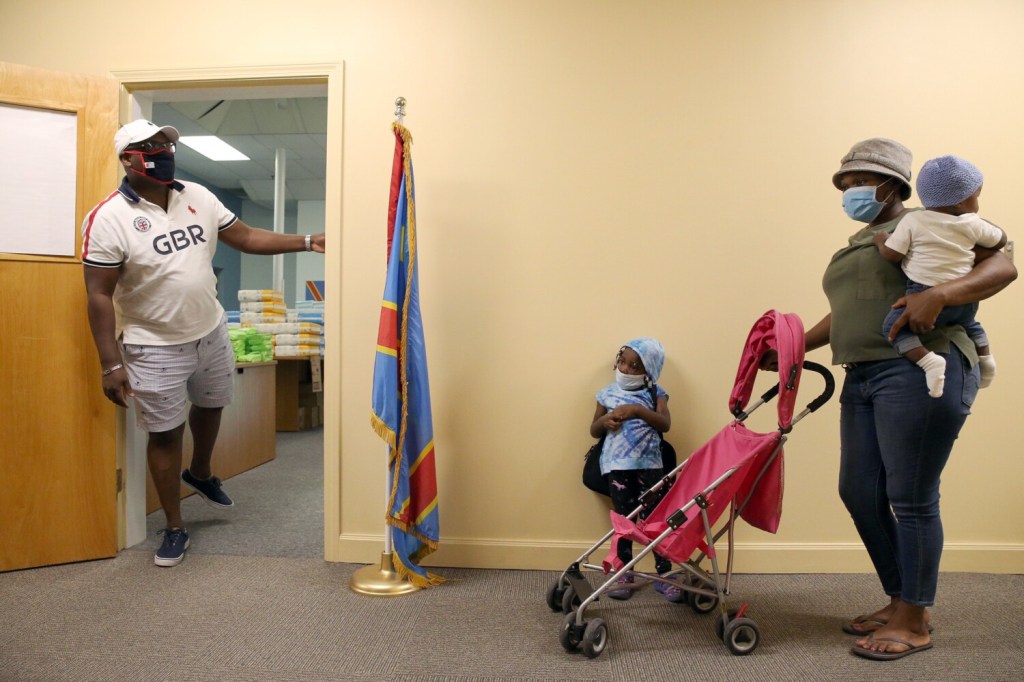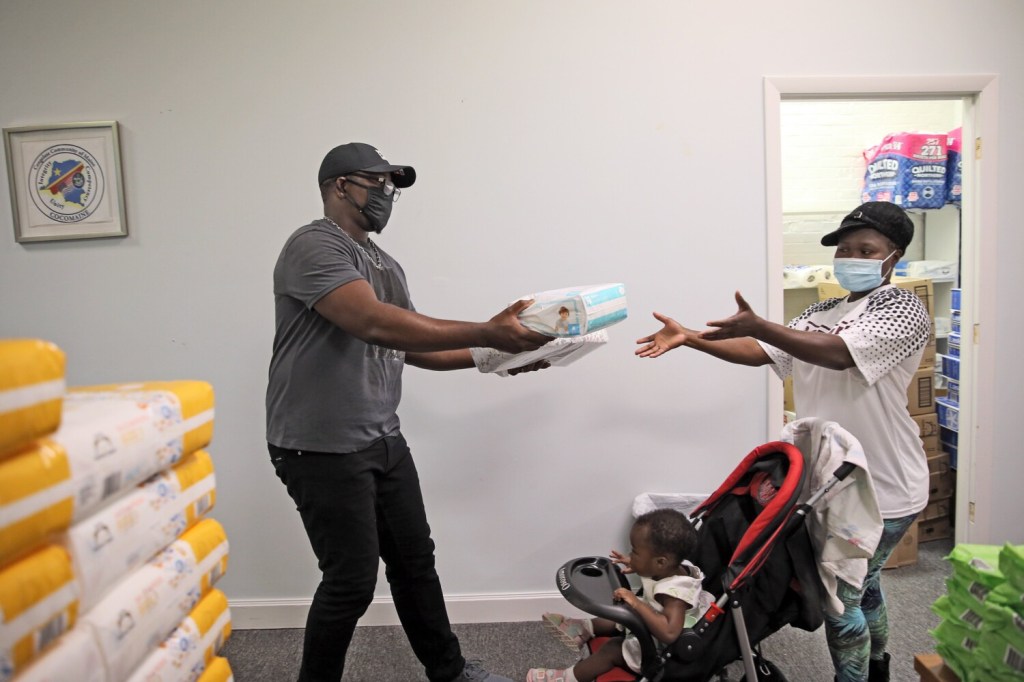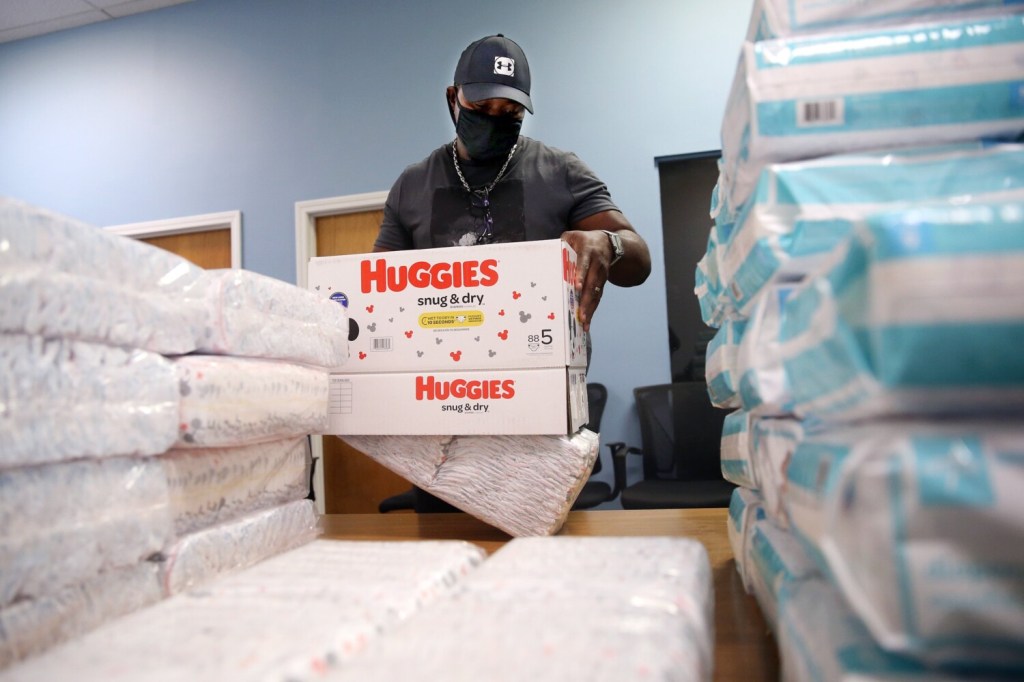The Congolese Community of Maine partnered with the Jewish Community Alliance of Southern Maine on Saturday to distribute baby supplies – especially much-needed diapers – in its latest effort to help immigrant families weather the coronavirus pandemic.
Papy Bongibo, president of the Congolese Community of Maine, greeted visitors at the door of 175 Lancaster St. in Portland with directions in English, French and Lingala, a Bantu language of the Congo. He handed out face masks to those who needed them, along with a squirt of hand sanitizer for each person entering the building.
“You have too many babies,” he joked in Lingala to a man with at least four packages of diapers teetering in his arms. “You need to slow down!”
Inside, Clement Yombe, vice president of the Congolese Community of Maine, reminded families to stay 6 feet apart as they waited to pick up their supplies.
The novel coronavirus has hit the community hard, and many people Yombe knows have been infected. Yombe himself contracted COVID-19 in April but has since recovered, he said.
Immigrants have access to some public health services in Maine, but they may not have easy access to masks, hand sanitizer, or information about how to avoid infection, Bongibo and Yombe said.
Analysis of infection rates in June indicated that Maine had the nation’s largest racial disparity in coronavirus cases. Black residents at the time had contracted the disease at 20 times the rate of infection for white residents.
For new families, Yombe said, “Diapers are the biggest need that people don’t think about. It’s expensive. And if you have kids, you have to have them. There’s no getting around that.”
Christina Bondonga, a volunteer with the Congolese Community of Maine, said in an interview that many immigrant families had come asking for any assistance they could get. They’ve told her and other volunteers, she said, “We’ll take anything you have, because we have nothing.”
The Congolese community plans to distribute diapers twice a month under a subscription plan that the Jewish Community Alliance of Southern Maine helped the organization to enroll in. Previously, the Congolese community organization had sent requests to the Jewish community for diapers and received the supplies indirectly, but demand has grown enough to open a second subscription, according to Bongibo and Yombe.
About halfway through the diaper drive, which lasted from noon to 2 p.m., the organization had served more than 50 families, or well over 150 people.
Bongibo said many of the asylum seekers who arrived in town last summer from Angola and the Democratic Republic of the Congo had stayed and were becoming part of the community. Most have settled permanently in Portland, Lewiston or Brunswick, he said.
“They’re Mainers now,” he said. “They have apartments. Their kids are going to school.”
But many still don’t have work permits because of the slow nature of the asylum process, Bongibo said, leaving them dependent on state and local aid, along with support from the community – such as the diaper drive. The Congolese association has been doing its best to help, providing information and translation services along with physical supplies.
The Congolese Community of Maine recently held an informational session with the Immigrant Legal Advocacy Project to explain the impact of a new Trump administration directive on immigrant work permits. And earlier this summer, the community group distributed hard-to-find staples of Congolese cuisine in hopes of giving immigrants a taste of home.
Comments are not available on this story.
Send questions/comments to the editors.





